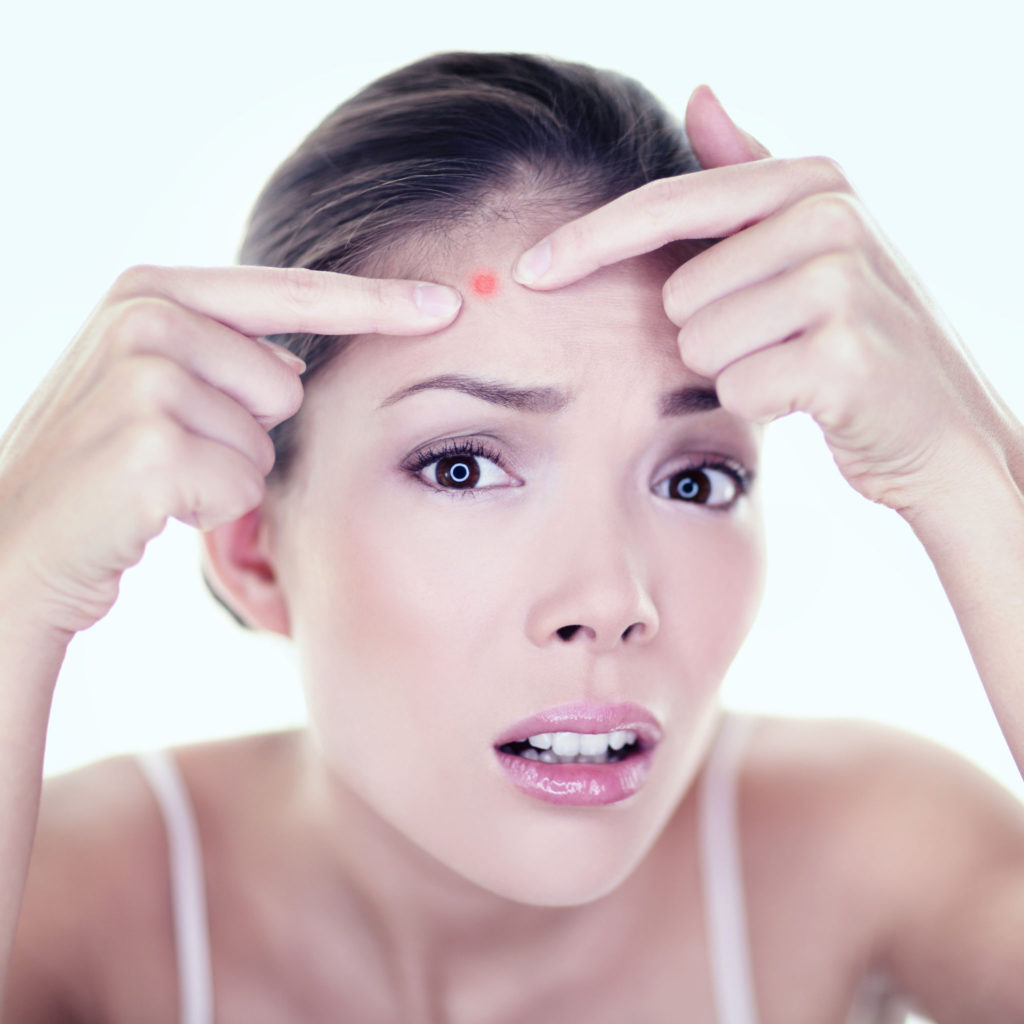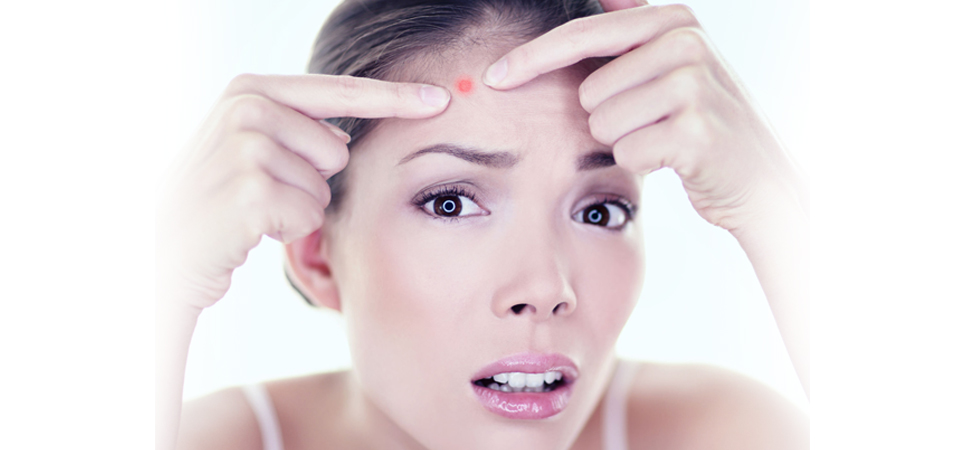
Last week I discussed the causes and treatments for oily problem skin. Although acne is a medical condition that has to be diagnosed by a medical professional, clients with acne may be able to improve the appearance of their skin with a combination of professional esthetic treatments and home-care program. When it comes to helping clients who are experiencing acne, whether they are teenagers or adults, education is key. Aside from discussing the importance of professional skin treatments and following an at-home care program, it’s important to discuss how bad lifestyle habits can affect acne. Below I share four habits that clients need to change for better home care.
Don’t over-cleanse.
Over-cleansing can be detrimental to acne prone skin. This can further irritate the skin, stripping essential moisture, causing inflammation and additional risk of infection.
Don’t pick.
Break bad habits, such as picking and squeezing the skin. Picking can spread acne-causing bacteria, and squeezing can spread infected material deeper into the skin, causing more inflammation and even scarring. As I always say, acne will go away, but scars will not.
Don’t neglect your diet.
New research has found that dairy and fermented or yeast-based foods can exacerbate acne conditions. These include aged cheeses, highly processed milk, wine, beer, champagne and mushrooms. Skin care experts now recommend probiotics to counteract unhealthy bacteria living in the stomach lining and the resulting inflammation that can increase acne flare ups as well.
Don’t tan.
Avoid sunbathing, and not just because of the damaging UV light. Once considered part of an acne treatment program, UV light can initially dry up excess sebum and reduce pustules, but can lead to a cascade of reactions that actually increase oil production and sebum build-up on the skin.
Have questions about skin care or best practices at your salon or spa? Leave them in the comments below!
*This blog is for informational purposes only and is not intended as medical advice, treatment or diagnosis. Always seek the advice of your doctor or health provider with any questions or concerns you may have about a medical condition.

I love receiving these e-mails from Lydia and Repechage! Lydia, on a daily basis I see clients who come in for a facial. During the consultation, when I ask them if they have any concerns about their skin, the answer is ‘no’ on most occasions. I find this to be confusing because once I get into the facial and perform a skin analysis on my client, I usually find they have extremely dry skin or couperose skin. Those seem to be the 2 most common skin types that I see. And their answer seems to convey to me that clients believe in their mind that symptoms that they may be having with their skin are ‘just a part of life’. Their mentality is that they have what they have and that’s that. During every facial treatment, I give my clients the time they need for questions and I explain different skin care methods that they can do at home for their skin type. I would love for clients to be more open about their skin concerns. My clients usually open up and have discussion about their skin once I start talking to them about it. I do enjoy their reaction afterwards with me, knowing their esthetician sees what they see and that I can give real advice for home care. I truly love being in this field!
Lynne,
I’m so glad you are enjoying our articles! That’s interesting that you say that. Unfortunately, clients are not always aware of their true skin concerns, but that is what we’re here for – we must educate our clients so they can have the best skin possible and we have a positive impact on their lives. It sounds like you’re doing both! Thanks so much for taking the time to write in Lynne. Cheers to beautiful skin!